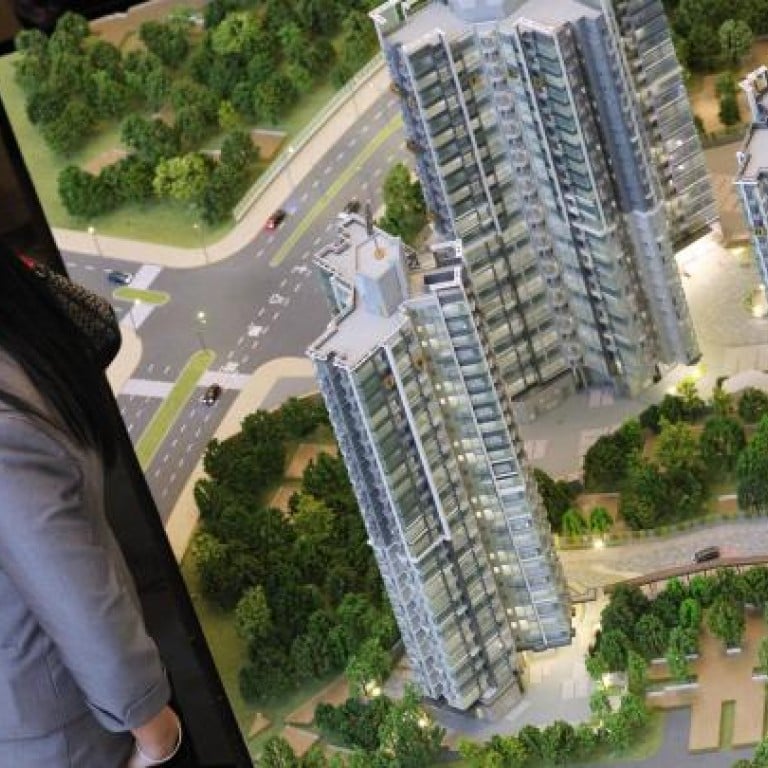
Firms not exempt from stamp duty on Hong Kong homes
Officials take a tough stand on new property tax and warn that a capital gains tax could be considered to further cool the red-hot market
Local companies will not be exempted from the new higher stamp duty on homes, top government officials said yesterday, amid warnings that further measures to cool the property market could be introduced, including a capital gains tax.
Calls have mounted from the business sector to exclude local firms from the anti-speculation taxes that came into effect at midnight on Friday. But Secretary for Transport and Housing Professor Anthony Cheung Bing-leung warned that any exemption could create loopholes for non-locals to speculate on property through local companies, as the use of limited liability companies to own property was common in Hong Kong.
Some property agents reported a drop in sales over the weekend as a result of a new 15 per cent stamp duty on home purchases by non-permanent residents and companies, and an extension of the special stamp duty to three years on quick resales. The rates now range from 10 to 20 per cent.
Professor Chan Ka-keung, secretary for financial services and the Treasury, called the new measures effective but warned that other new taxes, including a capital gains tax, could be considered when needed.
"[The new] measures are stronger than a capital gains tax," he told Commercial Radio. "But I am not suggesting that we will rule out other taxes."
He later elaborated: "Whether we shall consider other taxes, like a capital gains tax … we of course will not rule out any possibility of having other taxes."
Non-affiliated legislator Lam Tai-fai, who represents the industrial sector, said the measures could help cool the market but warned they could go too far. Investors may turn to commercial property, thus jacking up prices and rents. "This is what small and medium-sized enterprises are very worried about," he said.
His views were shared by Buggle Lau Ka-fai, of Midland Realty, who estimated that transactions of commercial properties could rise by 10 per cent.
Lam and New People's Party legislator Michael Tien Puk-sun also called for an exemption for firms registered in Hong Kong whose shareholders and directors are all Hong Kong permanent residents.
But Cheung flatly rejected this. "We feel that there is no mechanism whereby we can prevent [non-local buyers] using locals to form a company to evade the new buyer stamp duty."
Cheung said the government would be prepared to act if speculation spilled over to the commercial sector.
Home hunters appeared to shun flat sales yesterday. A check on sales offices at some new home projects across the city saw only a handful of people at each location. At one sales office of an upmarket project in Causeway Bay, a reporter was the only visitor at one stage. "Over the weekend, almost no one visited," said one agent.
Shih Wing-ching, chairman of Centaline property agency, said the new measures served no purpose other than making agents' lives more difficult. "It only kills agents. It cannot force down prices in the long run. With no increase in supply, how can you keep prices low?" he said.
Ricacorp Properties chief executive Willy Liu Wai-keung cited initial reports that transactions of new flats dropped to almost zero over the weekend, and the secondary market was also hard hit.
On his official blog yesterday, Financial Secretary John Tsang Chun-wah warned of the dangers of a property bubble forming. "This sentiment [of a rosy property market] is dangerous, against the backdrop that Hong Kong's economy is showing signs of slowing down," he said.
